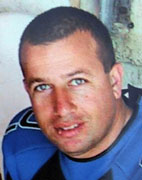CAMERA Prompts LA Times Correction on IDF
 CAMERA staff prompted a Los Angeles Times correction yesterday on an article which had wrongly stated that Israel's military is the largest in the Middle East.
CAMERA staff prompted a Los Angeles Times correction yesterday on an article which had wrongly stated that Israel's military is the largest in the Middle East. Accuracy and accountability are among the most important tenets of journalism. In combination, they mean media organizations are expected to publish or broadcast forthright corrections after sharing inaccurate information. The following corrections are among the many prompted by CAMERA’s communication with reporters and editors.
 CAMERA staff prompted a Los Angeles Times correction yesterday on an article which had wrongly stated that Israel's military is the largest in the Middle East.
CAMERA staff prompted a Los Angeles Times correction yesterday on an article which had wrongly stated that Israel's military is the largest in the Middle East.  CAMERA staff prompted a correction at National Public Radio yesterday, following an earlier "All Things Considered" report which falsely stated that Hezbollah fired rockets at Israel only after Israel hit Lebanon with airstrikes last summer.
CAMERA staff prompted a correction at National Public Radio yesterday, following an earlier "All Things Considered" report which falsely stated that Hezbollah fired rockets at Israel only after Israel hit Lebanon with airstrikes last summer.  National Public Radio erroneously reported recent rocket attack victims were "Israeli soldiers" when they were, in fact, civilian residents of Sderot, including Oshri Oz above.
National Public Radio erroneously reported recent rocket attack victims were "Israeli soldiers" when they were, in fact, civilian residents of Sderot, including Oshri Oz above.  A Boston Globe article about an Israeli high court ruling allowing Palestinians to sue the Israeli military for damages was accompanied by a misleading photo of three Palestinian children killed by Hamas gunmen.
A Boston Globe article about an Israeli high court ruling allowing Palestinians to sue the Israeli military for damages was accompanied by a misleading photo of three Palestinian children killed by Hamas gunmen.